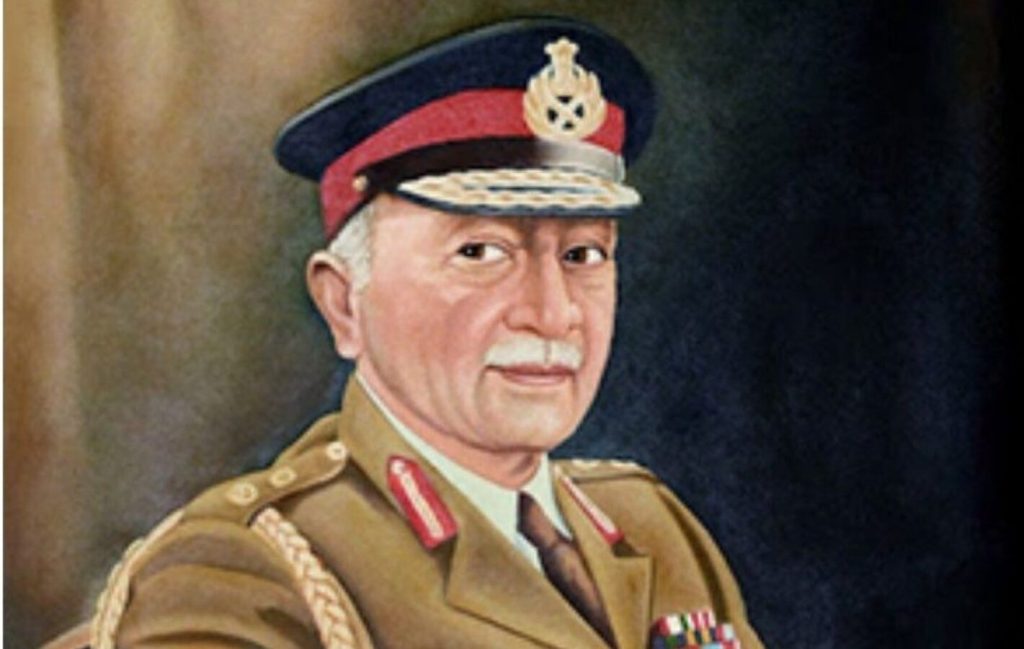January 15 holds significant importance in Indian history as it marks the day when General K.M. Cariappa, who later became a Field Marshal, made history in 1949 by becoming the first Indian Commander-in-Chief of the Indian Army. He succeeded General Roy Bucher, the last British Commander-in-Chief. This transition was a monumental step in the Indianization of the armed forces, signifying India’s full control over its defense and its growing self-reliance.
Let’s delve into the life and legacy of Field Marshal K.M. Cariappa to understand his invaluable contribution to the nation.
The Indian Army traces its roots back to 1757 when the East India Company formed its military units. Post independence, the restructuring of the armed forces was critical to ensure the nation’s security amidst challenges like partition. Indian Army Day serves as a reminder of this transformation and the Army’s commitment to safeguarding the country.
The day is commemorated with parades, military displays, and award ceremonies at the Cariappa Parade Ground in Delhi Cantonment. It honors the bravery and sacrifices of soldiers who have defended the nation through wars, peacekeeping missions, and disaster relief operations.
Field Marshal K.M. Cariappa: Kodandera Madappa Cariappa, born on January 28, 1899, in Shanivarsante, Coorg (now Kodagu), Karnataka, was a trailblazer in India’s military history. His illustrious career and dedication to the nation earned him the rank of Field Marshal, one of the highest honors in the armed forces.
Cariappa joined the British Indian Army in 1919, breaking barriers as one of the first Indians to receive the King’s Commission. He served with distinction during World War II, leading campaigns in Burma and the Middle East.
In March 1937, K.M. Cariappa married Muthu Machia, the daughter of a forest officer, in Secunderabad. Although their marriage began happily, it eventually faced challenges due to their 17-year age gap, differing ideologies, and Cariappa’s demanding professional commitments. This led to their separation in September 1945, though they did not formally divorce. Tragically, Muthu passed away in an accident three years later.
Cariappa became the first Indian to command a brigade in 1942.In the Indo Pak War of 1947-48, he led Indian forces in securing Jammu and Kashmir, showcasing exceptional leadership.
Cariappa’s philosophy was rooted in discipline, unity, and professionalism. His famous motto, “Safety, honor, and welfare of your country come first, always and every time,” resonates deeply within the Indian Army.
The couple had two children: a son, K.C. Cariappa, born on January 4, 1938, and a daughter, Nalini, born on February 23, 1948. Their son, affectionately known as “Nanda,” followed in his father’s footsteps in serving the nation and rose to the rank of Air Marshal in the Indian Air Force.
Cariappa’s family also included other notable military figures. His sister Bollava’s son, Lieutenant General Biddanda Chengappa, had a distinguished career in the Indian Army, retiring as the General Officer Commanding-in-Chief (GOC-in-C) of the Northern Command.
A man of deep spirituality, Cariappa was a devoted follower of Sathya Sai Baba and frequently visited him for blessings. He also drew inspiration from the teachings of Sivananda Saraswati, reflecting his belief in both discipline and spirituality.
Interesting and Lesser-Known Facts about Indian Army Day and K.M. Cariappa
Unity through Diversity: The Indian Army represents the nation’s diverse cultural tapestry, recruiting soldiers from various regions and communities.
Cariappa’s Integrity: During the 1965 Indo-Pak War, his son was captured as a POW. Despite personal stakes, Cariappa refused special treatment for him, emphasizing equality for all soldiers.
First Republic Day Parade: The 1950 Republic Day Parade was led by an Indian Army contingent, symbolizing the nation’s military pride.
Army’s Motto: The Army’s motto, “Service Before Self”, encapsulates its unwavering dedication to the country.
Women in the Army: The Indian Army began inducting women into its ranks in 1992, showcasing its progressive stance.
Modern Relevance of Indian Army Day
In the contemporary era, the Indian Army has expanded its role beyond conventional warfare. It is actively involved in disaster relief, peacekeeping missions, and infrastructure development in remote regions.
The Army also spearheads initiatives like Operation Sadbhavana to foster goodwill and development in conflict affected areas. Its efforts in technological innovation, such as the induction of indigenous weaponry, highlight India’s push for self reliance in defence.
Honoring the Brave:
Every Indian Army Day, gallantry awards like the Param Vir Chakra, Ashoka Chakra, and Shaurya Chakra are presented to soldiers for their extraordinary courage. The day also pays homage to martyrs who made the ultimate sacrifice for the nation.
Read more news on deshwale – https://deshwale.com/en/meta-apology-indian-elections-remarks/


